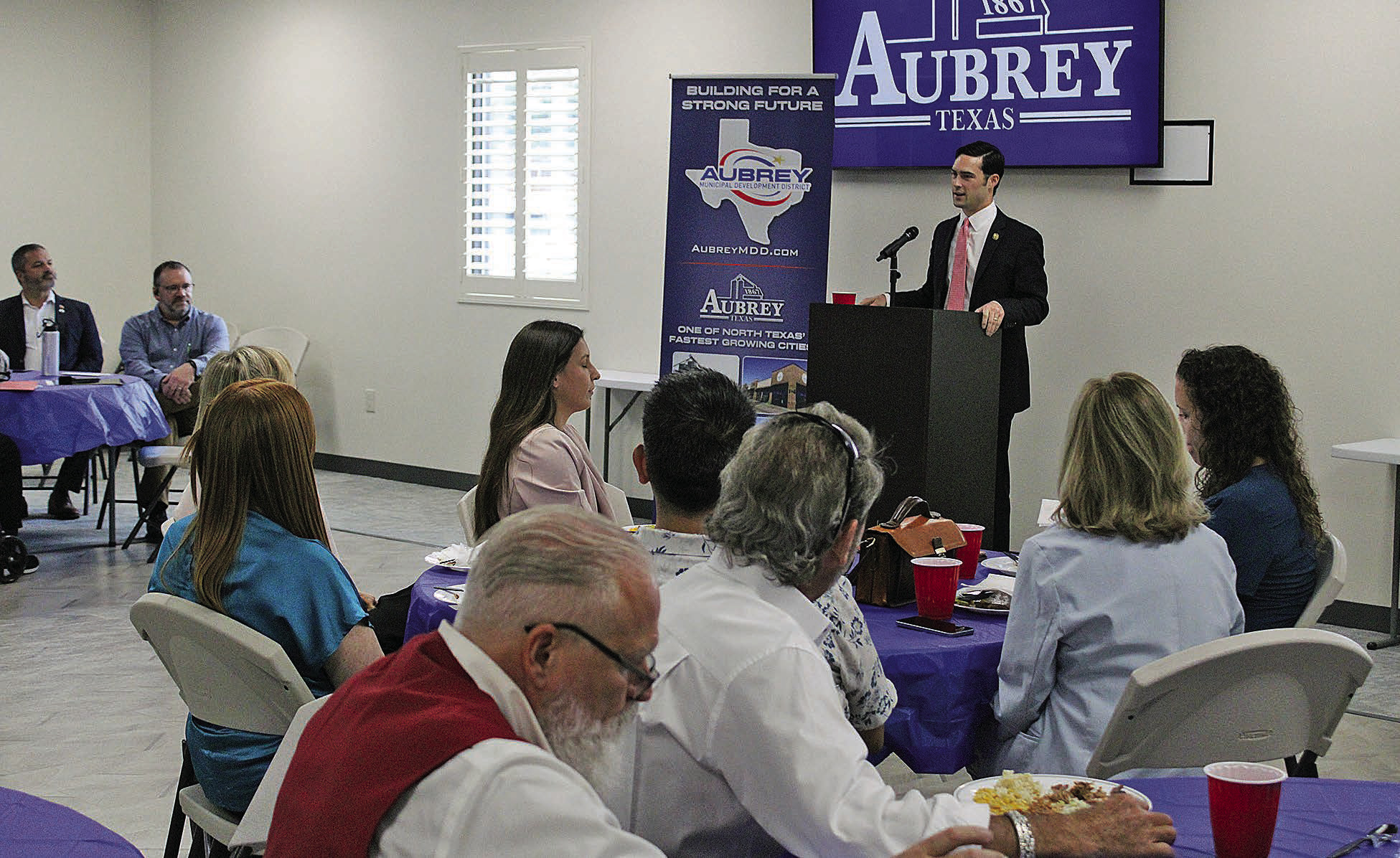The Aubrey area business community got a visit from Congress on June 18 when speaker Congressman Brandon Gill introduced himself and spoke about the work the committees he’s been appointed to are doing.
Gill sits on the Oversight and Government Reform, Judiciary and Budget committees and led with his work on the latter.
“Usually they put you on one or two, and for better or worse, they put me on three,” Gill said. “I serve on the House Budget Committee, and one thing you probably hear a lot about is the Big Beautiful Bill.”
Using the reconciliation framework, the far-reaching bill hopes to cover a broad range of topics including several citizen and business focused tax incentives including an extension of the 2017 Trump tax cuts, an increase in the 199A small business expense deduction and increased deductions for capital expenditures and research and development.
“These are all progrowth tax provisions, and as we’ve seen historically, when you cut taxes, that stimulates the economy,” Gill said. “We saw it in the ‘80s, we saw it in the early 2000s and we certainly saw it in 2017.”
The bill also incorporates border security and would fund the completion of the border wall, river barriers, 10,000 additional ICE agents and deportations.
“We saw for four years we pretty much had total anarchy at our southern border, that’s just a reality,” Gill said. “Already the president has secured our border. Border apprehensions are down 95%. For the first time, that I know of, we’ve seen zero illegal aliens being released into the country after being apprehended. That was not the case previously.”
It will also provide funding to plus-up the military, including the “Golden Dome, which will be a key part of our national defense system,” Gill said.
Additionally, the bill looks to deregulate the fossil fuel industry and roll back tax credits on green energy.
“Our economy, for better or for worse, I think for better, runs on fossil fuels, and you can regulate these businesses to death, and that’s what we’ve seen over the past four years,” Gill said. “We’re rolling back a lot of those regulations, as many as we can as part of this bill.”
He explained the bill might be bigger still, if Republican members of Congress weren’t using the reconciliation framework, which allows a bill to pass through the Senate with a simple majority as opposed to the standard 60/100 vote, as a toll to get it passed.
“Government spending is in two buckets,” Gill said. “There’s discretionary spending and mandatory spending. Discretionary spending is money that is appropriated each year. Mandatory spending is things that are just automatic. You can’t touch discretionary spending as part of reconciliation.” Despite that, Gill said the bill will encompass a $1.6 trillion tax reduction in mandatory spending.
“These are all things that are being negotiated and debated, but that’s the overall framework,” Gill said. “We are taking the first real steps to reigning in spending as part of this bill. This is a bill that cuts taxes, cuts spending and provides funding for border security.”
Between his work on each of the committees he’s been assigned, Gill pressed he believes he and the congressmen he’s working with are making steps to alleviate the government’s spending of money it doesn’t have.
“In Washington, you can spend more money than you have, and you can print more money to fill the gap,” Gill said. “We’re not going to fix all of that overnight, but we are making meaningful steps in that direction to get that under control.”


















